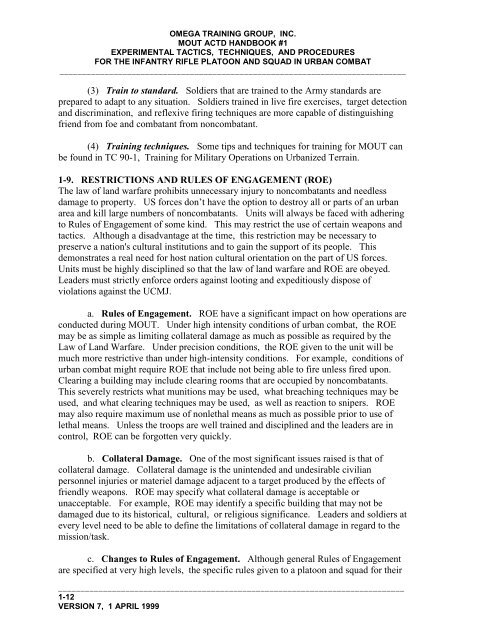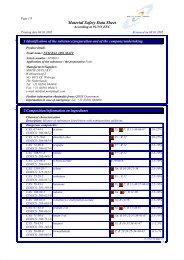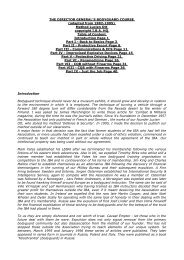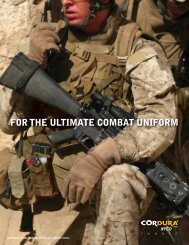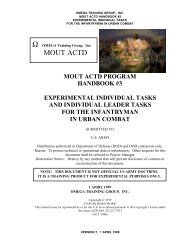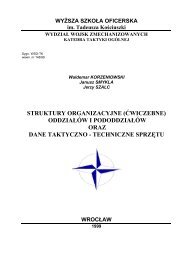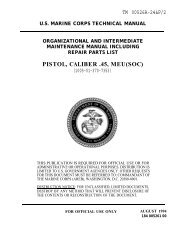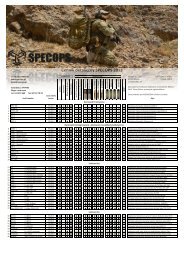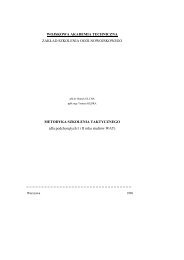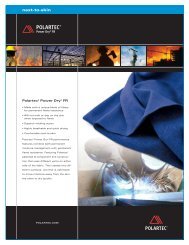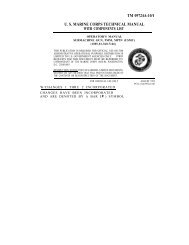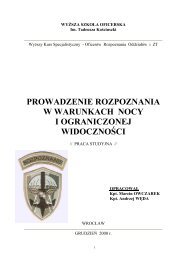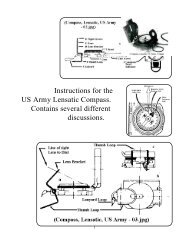mout actd program handbook #1 experimental tactics ... - SpecOps
mout actd program handbook #1 experimental tactics ... - SpecOps
mout actd program handbook #1 experimental tactics ... - SpecOps
You also want an ePaper? Increase the reach of your titles
YUMPU automatically turns print PDFs into web optimized ePapers that Google loves.
OMEGA TRAINING GROUP, INC.<br />
MOUT ACTD HANDBOOK <strong>#1</strong><br />
EXPERIMENTAL TACTICS, TECHNIQUES, AND PROCEDURES<br />
FOR THE INFANTRY RIFLE PLATOON AND SQUAD IN URBAN COMBAT<br />
_____________________________________________________________________________<br />
(3) Train to standard. Soldiers that are trained to the Army standards are<br />
prepared to adapt to any situation. Soldiers trained in live fire exercises, target detection<br />
and discrimination, and reflexive firing techniques are more capable of distinguishing<br />
friend from foe and combatant from noncombatant.<br />
(4) Training techniques. Some tips and techniques for training for MOUT can<br />
be found in TC 90-1, Training for Military Operations on Urbanized Terrain.<br />
1-9. RESTRICTIONS AND RULES OF ENGAGEMENT (ROE)<br />
The law of land warfare prohibits unnecessary injury to noncombatants and needless<br />
damage to property. US forces don’t have the option to destroy all or parts of an urban<br />
area and kill large numbers of noncombatants. Units will always be faced with adhering<br />
to Rules of Engagement of some kind. This may restrict the use of certain weapons and<br />
<strong>tactics</strong>. Although a disadvantage at the time, this restriction may be necessary to<br />
preserve a nation's cultural institutions and to gain the support of its people. This<br />
demonstrates a real need for host nation cultural orientation on the part of US forces.<br />
Units must be highly disciplined so that the law of land warfare and ROE are obeyed.<br />
Leaders must strictly enforce orders against looting and expeditiously dispose of<br />
violations against the UCMJ.<br />
a. Rules of Engagement. ROE have a significant impact on how operations are<br />
conducted during MOUT. Under high intensity conditions of urban combat, the ROE<br />
may be as simple as limiting collateral damage as much as possible as required by the<br />
Law of Land Warfare. Under precision conditions, the ROE given to the unit will be<br />
much more restrictive than under high-intensity conditions. For example, conditions of<br />
urban combat might require ROE that include not being able to fire unless fired upon.<br />
Clearing a building may include clearing rooms that are occupied by noncombatants.<br />
This severely restricts what munitions may be used, what breaching techniques may be<br />
used, and what clearing techniques may be used, as well as reaction to snipers. ROE<br />
may also require maximum use of nonlethal means as much as possible prior to use of<br />
lethal means. Unless the troops are well trained and disciplined and the leaders are in<br />
control, ROE can be forgotten very quickly.<br />
b. Collateral Damage. One of the most significant issues raised is that of<br />
collateral damage. Collateral damage is the unintended and undesirable civilian<br />
personnel injuries or materiel damage adjacent to a target produced by the effects of<br />
friendly weapons. ROE may specify what collateral damage is acceptable or<br />
unacceptable. For example, ROE may identify a specific building that may not be<br />
damaged due to its historical, cultural, or religious significance. Leaders and soldiers at<br />
every level need to be able to define the limitations of collateral damage in regard to the<br />
mission/task.<br />
c. Changes to Rules of Engagement. Although general Rules of Engagement<br />
are specified at very high levels, the specific rules given to a platoon and squad for their<br />
_____________________________________________________________________________<br />
1-12<br />
VERSION 7, 1 APRIL 1999


